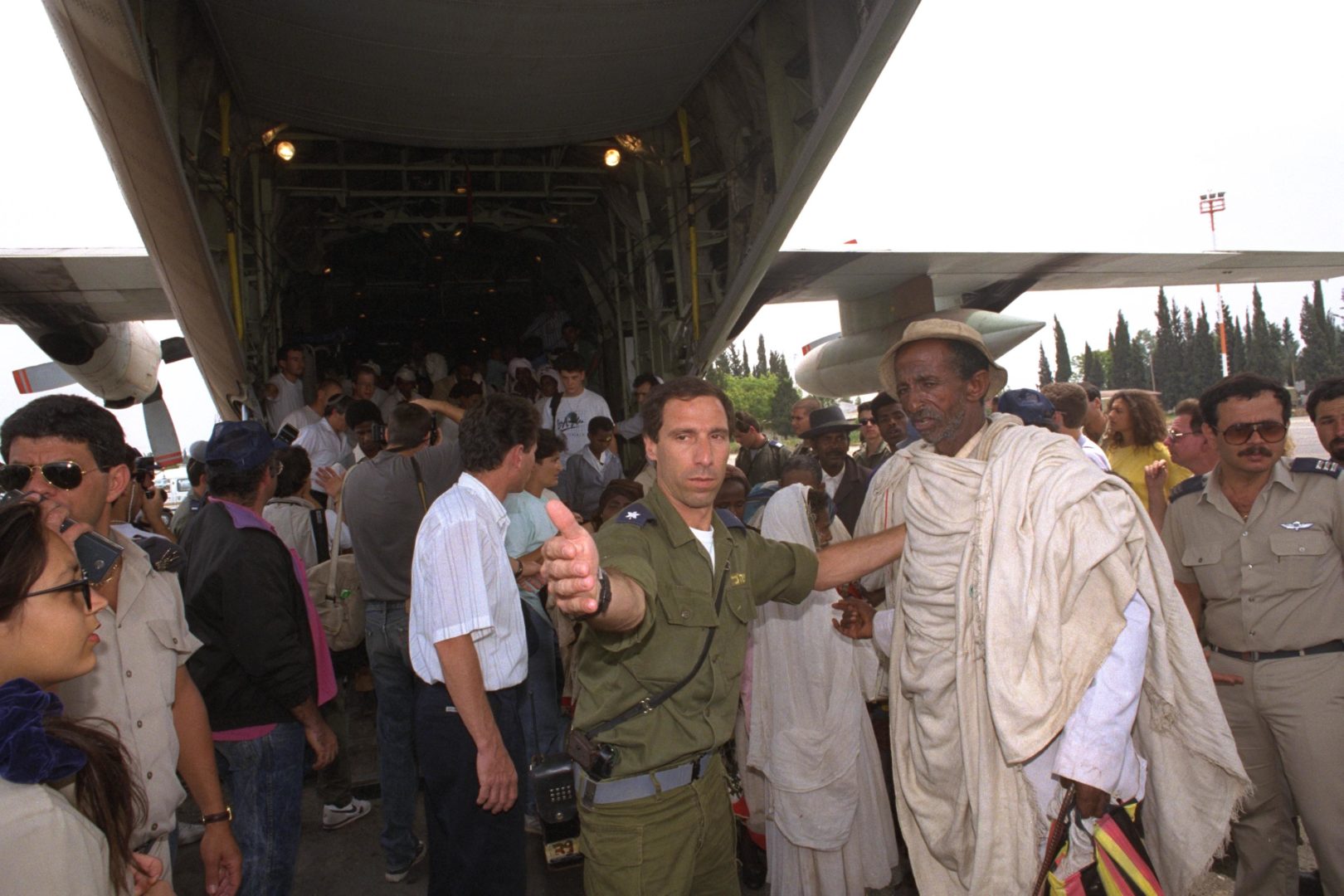On the face of it, the former residents of Gush Katif don’t appear to have much in common with first- or second-generation Ethiopian immigrants. Or with impoverished IDF soldiers, for that matter.
But as far as JobKatif is concerned, they do share one unfortunate characteristic: they all find themselves, for one reason or another, on the fringes of society, said Judy Lowy, executive director of JobKatif. And they all could benefit from a helping hand.
JobKatif was founded shortly after the 2005 removal of 8,000 Jewish residents of Gaza after Israel withdrew. The goal was to help the evacuees get back on their feet after losing their homes and livelihoods. Through an assortment of programs, job counselling, mentoring, moral support, loans and training, JobKatif has helped 85 per cent of the evacuees find gainful employment and, through that, self-respect.
Now it’s turning its sights to young Ethiopians and soldiers from poor families, who like the Ethiopians, are “people on the sidelines of society,” Lowy said.
Lowy was in Toronto recently to promote JobKatif, meet supporters and potential supporters, and garner financial assistance for its programs. About 30 per cent of JobKatif’s 5.8-million-shekel (nearly $2-million Cdn) budget comes from North America, and half is sourced in Toronto, she said.
Lowy, a British-born olah, spoke to gatherings at Shaarei Shomayim Congregation and the Forest Hill Jewish Centre. She said Toronto Jews are receptive to JobKatif’s message, which echoes Maimonides’ dictum that the best form of charity is to help people become self-sufficient.
Lowy noted that “a day after disengagement [in 2005], there was 85 per cent unemployment.” Today, that figure has been reversed, with 2,700 evacuees now at work. JobKatif is now extending its mission to help young Ethiopians, mostly women, prepare for a career in nursing, she said.
About 3-1/2 years ago, Rabbi Yosef Rimon, who founded JobKatif, was troubled when he saw many young Ethiopians working in low-paying jobs and as unskilled labourers. Half, he learned, lived in poverty.
But he saw potential in the younger Ethiopians, and “we discovered that the dream of many Ethiopian women was to become hospital nurses,” Lowy said. As it happens, Israel faces a nursing shortage.
JobKatif – which is not alone in trying to help Ethopians, Lowy stressed – found that young Ethiopians were being held back by poor tests on mandatory psychometric tests, which were designed to analyze the applicant’s native ability. But the tests were culturally biased in a way that made it difficult for them to succeed, she said.
With the co-operation of four nursing schools, JobKatif developed a pilot project for 10 Ethiopian students, who recently completed a three-year education program, passing with flying colours, she said.
“We gave them a basket of support services,” including a stipend, access to tutorials (rarely used) and monthly workshops to discuss their progress.
JobKatif is helping place the students in various Israeli hospitals, including Hadassah Hospital in Jerusalem, Kaplan Medical Center in Rehovot and Assaf HaRofeh Medical Center, outside Tel Aviv.
One year ago, it was already apparent all the students would graduate, so JobKatif aligned with Hadassah to arrange placement for another 50 Ethiopians in an academic track at Hebrew University’s Hadassah nursing school over the next two years. “This is a tremendous breakthrough,” Lowy said.
The program will be funded largely by Hadassah and the State of Israel, but JobKatif will provide about $7,000 (US) per student per year. JobKatif will recruit the students – 100 applied for 25 spots this year – and will mentor them through their education.
JobKatif has also branched out to help soldiers from poorer elements of Israeli society. It has received the IDF’s co-operation to provide leaves, from one day to one week, to allow soldiers to work. When they’re finally discharged, JobKatif will provide vocational guidance and training so they can find high-quality employment, she said.
It’s another win-win for individuals and Israeli society. “We’re winding down with the Gush Katif people, but we want to take that principle about employment to help Israeli society. That’s the key to ending poverty,” Lowy said.
